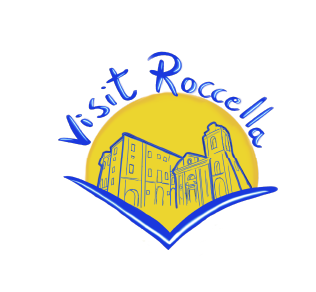translated with AI
The current headquarters of the Municipal Library and the Study Center of Dialectology “Giuseppe Falcone” was conceived over time as a reference center for the historical and cultural development of Roccella. These were the intentions of Senator Sisinio Zito when this private residence became municipal property. Patience was required for this house to be restored according to the standards of the modern restoration system for ancient civilian residences. Several years passed before this building could be fully utilized and adequately put to use.
During that time, the “Roccella Com’era” Cultural Association excelled in Roccella in the sector of cultural, historical, and traditional promotion. The first president of this association was the surveyor Ilario Antonio Alvaro, supported by active collaborators with remarkable organizational and cultural promotion skills, such as Professor Giuseppe Falcone, Principal Domenico Curtale, and professors Giuseppe Guarneri and Antonio Simone, who were the pillars of the association, deserving praise for the cultural development in Roccella during those years.
There were countless initiatives that we want to briefly mention here. One of the first actions that distinguished the Association was the restoration of an ancient animal-powered olive mill, unique in its kind in the Roccella area, as this structure preserved all the pieces used in the olive processing for oil extraction since ancient times. Due to the long period of inactivity of this olive mill, it presented cracks in the walls that needed to be repaired and the need for roof replacement. Everything was done to preserve it from the wear and tear of time and the rains that damaged the wooden parts of which it is made. The intention of “Roccella Com’era” was to keep it visible and open to visits to promote cultural moments in all its forms inside. This intention proved to be a success. Next to it, in an adjoining room, for the first time in Roccella, a small museum unit was inaugurated with an exhibition of tools used in peasant and artisan civilization.
For its usability, the Association had to invest, non-reimbursably, part of its savings. For everything done, the funds spent proved to be gained back, for the many times it was utilized. Guided tours were organized on the occasion of the numerous editions of the “Borgo in Festa”; guided tours for tourists and school groups; well-structured television broadcasts, including by RAI, that highlighted music, culinary tradition, and customs.
Returning to the headquarters, after the modernization work, Senator Sisinio Zito, Mayor Professor Giuseppe Certomà, and the municipal administration decided to name it after Professor Gaetano Cingari, becoming the venue for cultural initiatives and programming.
The choice of the name for the study center dedicated to Professor Cingari is the rightful recognition of the first published literary work on the history of Roccella. This publication was the basis from which researchers of local history started their investigations to deepen and broaden the knowledge of Roccella’s past.
On the day of the inauguration of the headquarters as a “Study Center,” various authorities from the world of culture and historical studies were invited, with Professor Giuseppe Caridi and Professor Enzo d’Agostino leading them. For the occasion, the various rooms were adorned with “portraits” of the various Carafa Princes that could be found.
“Roccella Com’era,” given its knowledge in Carafan matters, became a promoter of initiatives for the historical knowledge of Roccella, starting from the analysis of over three centuries of domination by these feudal lords in Roccella. With this goal in mind, historical-educational activities and guided tours were scheduled for Roccella’s schools, thanks to the collaboration of some members of the Association, particularly dedicated to studies on the Carafa family.
Faced with such willingness and competence shown by the association towards culture, Senator Zito and the Municipal Administration agreed to entrust this cultural hub to the “Roccella Com’era” Association, aware that during that time, no one else but this group could offer the ability, preparation, and good use of the headquarters to foster cultural growth in Roccella.
The choice of this Association was certainly prudent and accurate, as there were countless successes achieved in almost twenty years of cultural activities developed within the Borgo headquarters. Without delving into details, one can think of the research and study work that led to about ten valuable literary publications, all self-financed with the Association’s savings; the organization of conferences and high-profile meetings; the preparation and staging of the “Street Theater” during the carnival period; various exhibitions, especially on the Carafa family and Roccella’s history at the Convent of the Minimi and the Castle Palace; participation in the recreational and evocative activities of various trades during the “Borgo in Festa” events; participation in the “Living Nativity Scene,” in the “New Oil Festival”; programming of the “Historical Carafa Parade.”
The only regret of the “Roccella Com’era” Association is not having been able to enjoy, in these years, the active and constant involvement of local youth due to the socio-civic reality of the times, with the wild emigration of young people who, after attending high school, move elsewhere for university studies, and then wander the world in search of work, without returning permanently to Roccella. The lack of new regenerative energy poses a serious problem, not only locally, for the transfer of what has been researched, studied, analyzed, built, and disseminated over all these years, a heritage of sown values that runs the risk of being barren.
Today, the House of Culture maintains its role as a cultural incubator and scientific deepening on the Carafa family, and also houses the BiblioTe.Ca. (Telling Calabria), a modern multimedia library with a digital storytelling laboratory; a computer room where you can also consult e-books; a specialized bibliographic heritage on the knowledge of Calabria thanks to local, national, and international authors who have frequented and narrated it; a comfortable reading room; a renowned internal courtyard used for book presentations and has also received a prestigious library fund on literature, cinema, and cities from Professor Enrico Costa, of the Mediterranean University of Reggio Calabria.
